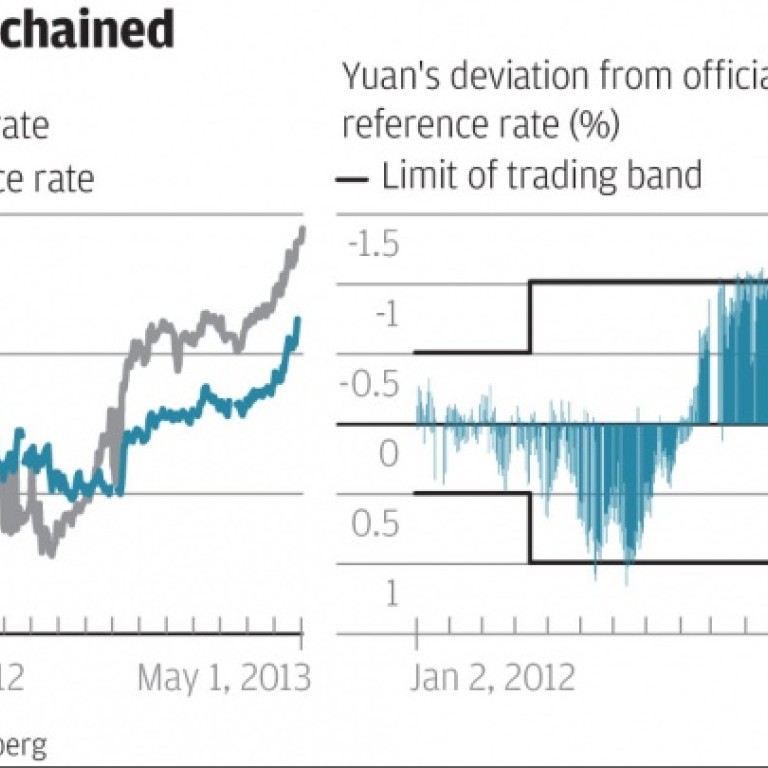
Widening the yuan's trading band won't solve anything
By fixing the rate higher each day, the authorities have encouraged more inflows, forcing them to intervene to buy even more foreign currency
Yesterday the mainland's currency, the yuan, climbed to its strongest level against the US dollar since its 1994 devaluation.
The latest in a series of recent highs, yesterday's gain prompted fresh market speculation that the authorities in Beijing are preparing to widen the yuan's permitted trading band, a move widely regarded as the logical next step towards currency liberalisation.
In reality, however, widening the yuan's trading band will do little to ease official constraints on the mainland's foreign exchange market, and nothing to solve the currency problems now confronting Beijing.
Expectations of further reform have been running high since the middle of last month when People's Bank of China deputy governor Yi Gang said the yuan's trading band would be widened "in the near future".
Swiss Bank UBS forecast that the band would be eased within days, while the intoned in an editorial that "widening of the yuan trading band is in the best interests of China".
Yet weeks after Yi's comment, the central bank still hasn't moved. And if officials are now having second thoughts, they have good reason.
Foreign exchange analysts say a broadening of the yuan's trading band would allow more exchange rate fluctuation and would represent another step back from the market by mainland authorities.
At the moment however, a band widening would achieve nothing but a small one-off upward revaluation of the yuan.
For the past year, the authorities have allowed the yuan's exchange rate against the US dollar to trade as much as 1 per cent either side of a daily reference rate fixed each morning by the central bank.
Since last October, strong demand for the yuan created by capital inflows has regularly pushed the exchange rate straight to the strong side of the band during intraday trading (see charts).
That has had two effects. Firstly, it has forced a reluctant central bank to intervene heavily in the market to keep the currency within its permitted band.
According to one estimate, the authorities bought an average of almost US$2.7 billion of foreign currency each trading day during the first three months of this year.
As a result, Beijing's vast and largely unwanted pile of foreign reserves has got even bigger, hitting US$3.44 trillion, or around 40 per cent of China's gross domestic product, at the end of March.
Secondly, it has prompted the central bank to accelerate the pace at which it has appreciated its daily fixing rate, apparently in an effort to catch up with the spot exchange rate and slow down its interventions.
If that was the central bank's objective, it has backfired spectacularly.
By fixing the reference rate higher each day, the authorities have merely created the expectation of yet faster appreciation, encouraging more inflows, and forcing them to intervene to buy even more foreign currency.
Widening the yuan's trading band, say to 2 per cent either side of the reference rate won't change that.
The spot rate would immediately move to the strong side of the wider band, forcing the authorities to intervene once again to keep the exchange rate within the new range.
The move would do nothing to liberalise the market, because the central bank would still determine the exchange rate's movements over time by dictating the daily reference rate.
At best, all the authorities would have achieved would have been a one-time 1 per cent upward revaluation of the yuan, further increasing the pressure on China's struggling exporters.
At worst, they would have reinforced the market's appreciation expectations, encouraging more inflows and increasing their rate of foreign reserve accumulation.
No wonder they are hesitating.

